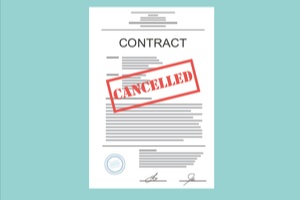 The DCMA authorizes and manages contracts that are issued by the Department of Defense (DoD) as well as other federal government agencies. Government contractors are expected to follow Federal Acquisition Regulation (FAR) guidance and remain compliant with all standards and obligations as it relates to issued contracts. Being out of compliance places contractors at risk of penalties and/or an inability to procure future contracts with government agencies.
The DCMA authorizes and manages contracts that are issued by the Department of Defense (DoD) as well as other federal government agencies. Government contractors are expected to follow Federal Acquisition Regulation (FAR) guidance and remain compliant with all standards and obligations as it relates to issued contracts. Being out of compliance places contractors at risk of penalties and/or an inability to procure future contracts with government agencies.
What Is DCMA Compliance?
The Defense Contract Management Agency (DCMA) is a United States federal agency that provides contract administration services for the Department of Defense (DoD). They ensure that all equipment produced for military purposes is delivered on time, at the project cost, and meets all performance requirements. According to the DCMA website, the DCMA manages 300,000 contracts at a valuation of $7 trillion in total; they receive an average of 1,000 new contracts and authorize more than $700 million in payments to contractors every business day.
What Are The Risks Of Not Remaining DCMA Compliant?
The four most notable risks of not remaining DCMA compliant are a reduction in the number of contracts that you are awarded by government agencies, the cancellation of current contracts, exclusion from future work on government contracts, and possible legal trouble. The extent of the consequences depends on the reason for being considered non-compliant with DCMA requirements for government contractors.
Exclusion From Further Government Contracting Work
The primary goal of contracting agencies such as the DCMA is to ensure the successful completion of government-issued contracts. Specifically, this involves ensuring that services and materials are provided on time within the agreed-upon project cost, and that they meet the quality and performance requirements. Contractors may be considered non-compliant if they do not deliver their products or services on time or to the standard that is required by the Department of Defense (DoD) or a separate government agency.
Cancellation Of Current Contracts
 Not being DCMA compliant can also lead to the cancellation of contracts that you have already been awarded and are currently working to complete. This can also include the inability to collect payments on the current contract past what you are owed or, in some instances, possibly owing the government money.
Not being DCMA compliant can also lead to the cancellation of contracts that you have already been awarded and are currently working to complete. This can also include the inability to collect payments on the current contract past what you are owed or, in some instances, possibly owing the government money.
Reduced Amount Of Work From The DoD And Other Federal Government Agencies
In instances where it is determined you did not meet the standards of the DCMA but they did not exclude you from future work, it can take time to rebuild your business’s reputation with the government. While rebuilding your reputation, government agencies are less likely to hire you for contracts you are otherwise qualified for and would be awarded. This is usually the case for minor offenses, and over time you should be able to rebuild your reputation as long as you improve your business practices and accounting system that were found to be out of compliance with DCMA requirements.
Legal Trouble Related To Fraud
This risk is relatively rare and should not be a concern as long as your business practices are ethical and honest. However, a contractor who manipulates accounting information to reflect goods or services that were not provided to increase the contract amount could be vulnerable to legal trouble. Additionally, and perhaps more commonly, increasing the amount of hours your employees have worked to increase the cost of the contract could lead to legal trouble as well, in addition to being considered out of compliance.
What Are DCMA Requirements?
DCMA requirements may vary slightly based upon the type and purpose of the contract you were awarded. Most notably, government contractors should deliver their products or services on time and with the quality standards that are required, and have an accounting system that meets GAAP requirements if the contract is a fixed price contract, cost plus contract, or time and materials (T&M) contract.
On-Time Delivery Of Products That Meet Performance Requirements
A common reason contractors are not considered DCMA compliant is the late delivery of goods or services. Additionally, delivering goods or services that do not meet the quality or performance requirements of the DCMA could lead to non-compliance as well and put the contractor at risk of penalties such as a reduced willingness from agencies to award the contractor future contracts or an exclusion from submitting a proposal for future contracts altogether.
An Accounting System That Uses Generally Accepted Accounting Principles (GAAP)
 Generally accepted accounting principles (GAAP) is the accepted accounting standard of the U.S. Securities and Exchange Commission. GAAP is expected to be followed when working on contracts that are managed by the DCMA. This should include a reliable and up-to-date accounting system that the contractor (or their government contract consultant) understands how to properly use. If the accepted accounting principles are not followed, then the contractor is not considered DCMA compliant.
Generally accepted accounting principles (GAAP) is the accepted accounting standard of the U.S. Securities and Exchange Commission. GAAP is expected to be followed when working on contracts that are managed by the DCMA. This should include a reliable and up-to-date accounting system that the contractor (or their government contract consultant) understands how to properly use. If the accepted accounting principles are not followed, then the contractor is not considered DCMA compliant.
Remaining in compliance with DCMA regulations ensures that government contractors maintain good standing with the organization, and demonstrates that the contractor is well suited for future opportunities. The knowledgeable team at Diener and Associates understands all current policies and requirements to help government contractors maintain DCMA compliance. To learn more about ensure your government contracting business remains DCMA compliant, reach out to the experts at Diener and Associates today.
